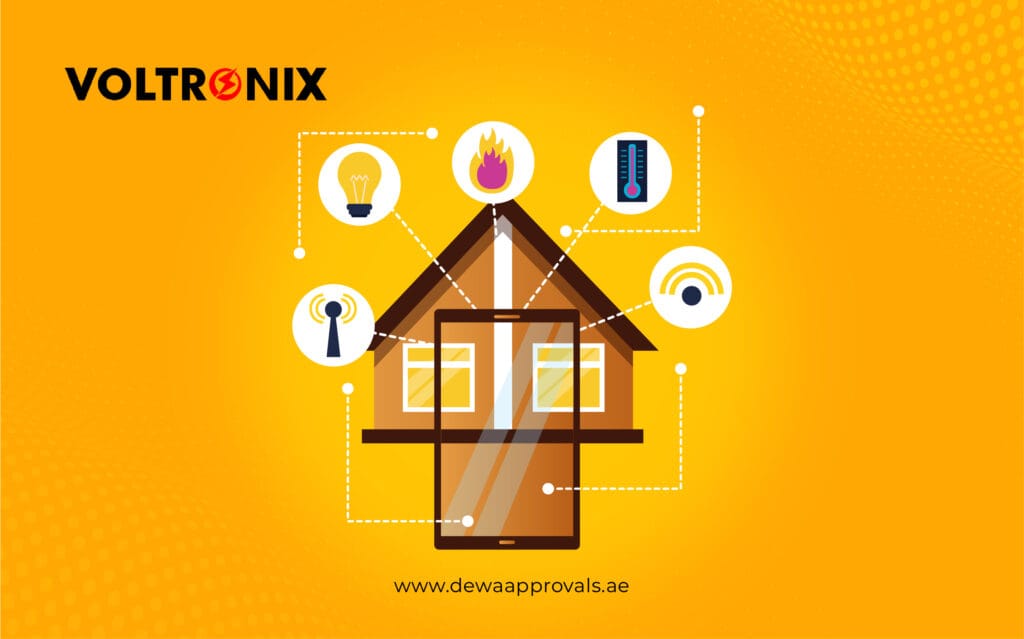The Dubai Electricity and Water Authority (DEWA) has recently rolled out new guidelines that are set to shake things up for electrical contractors, engineers, interior designers, and entrepreneurs involved in residential and commercial projects. These DEWA approvals are not just a formality; they signify a new era of compliance and innovation that can significantly affect how projects are planned and executed in Dubai. Understanding these changes can help professionals in the industry navigate the landscape more effectively and leverage new opportunities.
Understanding the New Guidelines
The latest DEWA guidelines focus on enhancing sustainability, efficiency, and safety in all electrical installations. With the UAE’s ambitious goals for a greener future, these changes align with the broader vision of reducing energy consumption and promoting renewable resources. As an electrical contractor or engineer, it’s essential to grasp the nuances of these guidelines because they will impact everything from project timelines to budgeting.
One of the key aspects of the new guidelines is the emphasis on energy-efficient systems and technologies. This is particularly relevant for interior designers and architects who are responsible for creating spaces that are not only aesthetically pleasing but also environmentally sustainable. With energy-efficient designs becoming the norm, staying updated on the latest DEWA approvals will allow you to offer clients innovative solutions that meet these new standards.
Navigating the Approval Process
For many in the industry, the approval process can seem daunting. However, understanding the new guidelines can streamline this process significantly. The introduction of online platforms for DEWA approvals has made it easier for contractors and engineers to submit their applications, track their progress, and receive timely feedback.
As a contractor, it’s crucial to prepare your documentation meticulously. This includes ensuring that your designs comply with the new standards and are backed by the necessary technical justifications. The new guidelines also emphasize the need for comprehensive documentation of electrical load calculations and equipment specifications. Familiarizing yourself with these requirements will save you time and effort in the long run.
Embracing Innovation in Electrical Services
The changes brought about by the new DEWA guidelines also present a golden opportunity for businesses to innovate. The rise of DEWA-approved electrical services in Dubai means that contractors and engineers can now offer clients a broader range of solutions that meet the latest standards. This not only enhances your service portfolio but also positions your business as a leader in the market.
For instance, integrating smart technology into residential and commercial projects is becoming increasingly popular. Smart systems can significantly improve energy efficiency and provide clients with greater control over their energy consumption. As an entrepreneur, staying ahead of the curve in terms of technology adoption can set you apart from your competitors and appeal to environmentally conscious clients.
Collaborative Opportunities
With the emphasis on compliance and sustainability, collaboration becomes essential. Interior designers, engineers, and contractors must work together to ensure that projects meet the new guidelines. This collaborative approach can lead to innovative solutions that enhance both functionality and design. Regular communication and shared objectives will help everyone involved in the project stay on the same page.
Consider holding workshops or seminars that bring together professionals from different fields to discuss best practices for adhering to the new DEWA guidelines. This not only fosters a sense of community but also opens up avenues for networking and collaboration on future projects.
The Future of Electrical Projects
Looking ahead, the new DEWA guidelines will likely lead to a significant shift in how electrical projects are executed in Dubai. For contractors, engineers, and designers, staying informed and adaptable will be key to thriving in this evolving landscape. The focus on sustainability and efficiency means that those who embrace these changes will be well-positioned for success.
In the final analysis, while the new guidelines may seem like an added challenge, they also represent a chance for growth and innovation in the electrical industry. For contractors, ensuring compliance with DEWA approvals can lead to enhanced credibility and trust with clients. As the market shifts, being among the first to adapt will give you a competitive edge.
One area that is particularly relevant in this context is the importance of electrical replacements service. As properties age and technology evolves, the need for upgrades and replacements will become more pressing. Offering services that comply with the new guidelines will ensure that your business remains relevant and in demand.
Conclusion
In summary, the new DEWA guidelines are set to redefine how residential and commercial projects are approached in Dubai. For electrical contractors, engineers, interior designers, and entrepreneurs, understanding these changes is crucial for navigating the evolving landscape. Embracing innovation, focusing on compliance, and fostering collaboration will not only ensure success but also contribute to a more sustainable future for Dubai. The opportunities are vast, and those who are proactive in adapting will surely reap the benefits.









